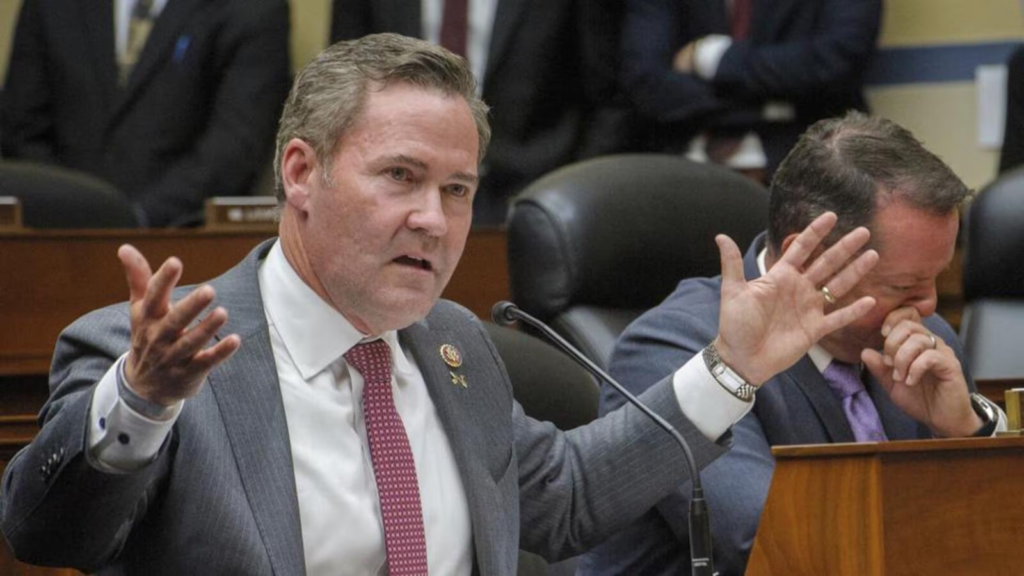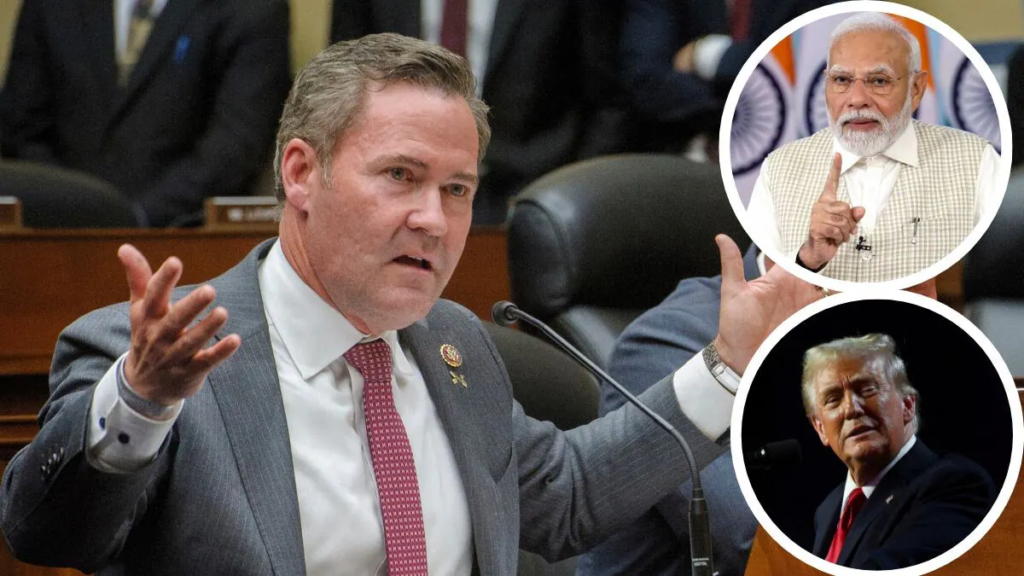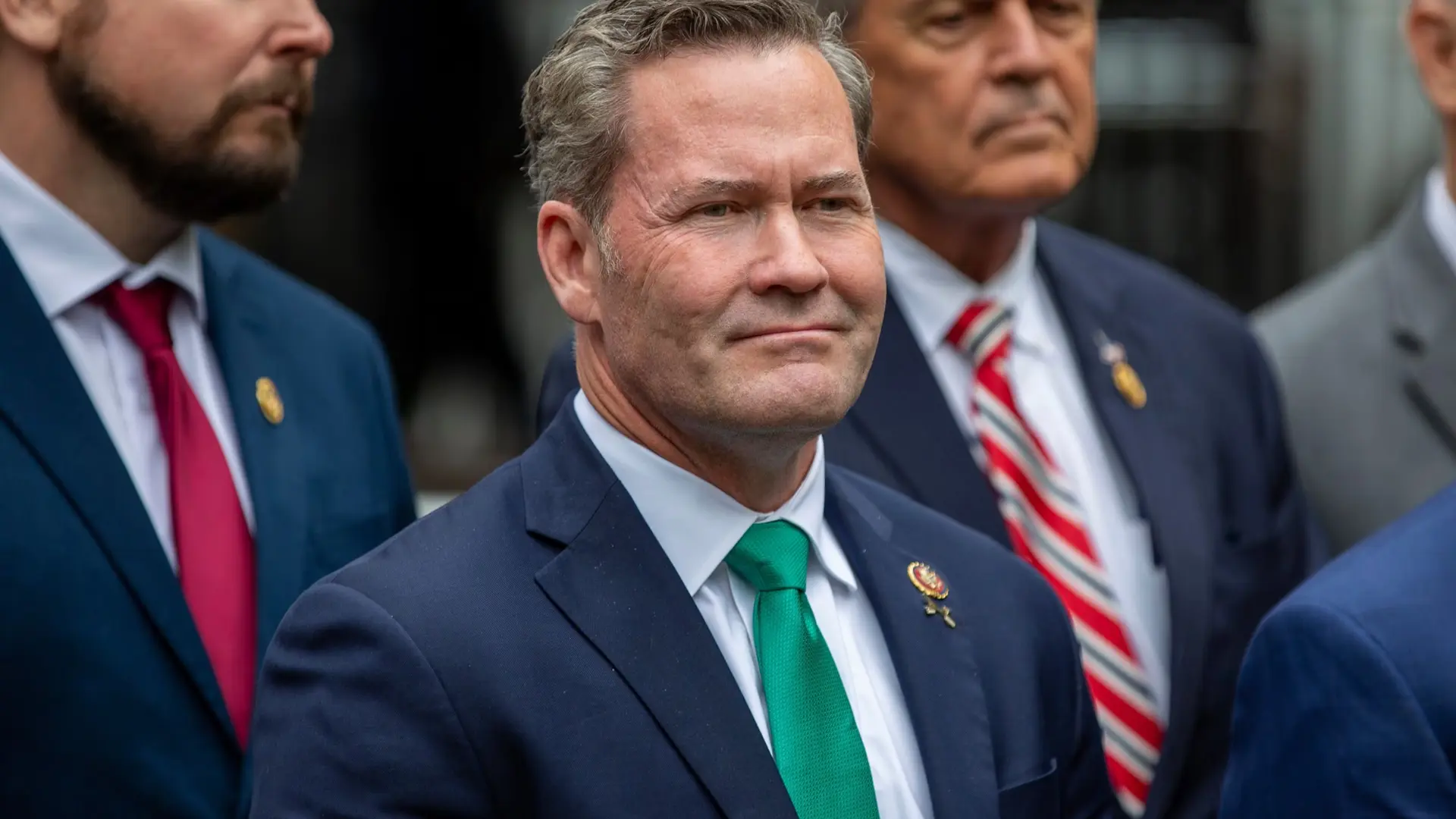President-elect Donald Trump has chosen Republican Congressman Mike Waltz, a staunch advocate for stronger US-India ties and a vocal critic of Chinese policies, as his National Security Adviser.
A retired Army National Guard officer with extensive experience in military and defense policy, Waltz brings a unique combination of battlefield experience, geopolitical awareness, and strong conservative views to the role.
Mike Waltz’s selection highlights the Trump administration’s likely focus on a hawkish stance towards China, closer security partnerships with India, and a reevaluation of U.S. commitments globally. Waltz’s appointment is anticipated to have significant implications on U.S. foreign policy, particularly in Asia.
Waltz’s Background and Stance on National Security Issues
Mike Waltz, a three-term congressman from Florida, has served multiple tours in Afghanistan and held policy roles within the Pentagon, giving him direct exposure to the complexities of U.S. military strategy and international relations.
Known for Mike Waltz hawkish views, especially regarding China and the Indo-Pacific region, Waltz has a reputation as a conservative leader who is unafraid to challenge prevailing opinions on defense and national security.
One of his hallmark positions was his strong opposition to the Biden administration’s handling of the 2021 Afghanistan withdrawal, which he labeled as poorly executed and damaging to American credibility.
Waltz has also been a vocal supporter of the United States providing military assistance to Ukraine, though he recently suggested a reassessment of U.S. objectives in the region to ensure they align with America’s long-term security interests. His evolving stance on Ukraine indicates a pragmatic approach to foreign policy, one that may involve tough questions about U.S. investments in foreign conflicts.
Read : India to Have the Highest Number of Trump Towers After Trump’s Win
Waltz’s record in Congress also underscores his commitment to addressing domestic defense issues. He has pushed for reforms in the military’s leadership and education, including a focus on reducing what he sees as politically motivated programs within the armed forces.
Read : Trump Challenges Biden to Golf Match with $1 Million Charity Bet
Mike Waltz proposed audit of DEI (diversity, equity, and inclusion) programs in the military illustrates his emphasis on a merit-based structure over politically driven initiatives.
Strengthening U.S.-India Relations Through the India Caucus
As co-chair of the Congressional Caucus on India and Indian Americans, Waltz has long advocated for deepening ties between the United States and India, two of the world’s largest democracies.
This caucus represents the largest country-specific bipartisan coalition in the U.S. House of Representatives, reflecting Waltz’s belief in the strategic importance of a strong U.S.-India partnership.
Waltz has championed initiatives to foster closer defense and economic ties with India, recognizing India’s role in maintaining stability and countering authoritarian regimes in the Indo-Pacific region.
In Mike Waltz role as co-chair, Waltz has worked to facilitate dialogue and cooperation on defense and security matters between the two countries. His commitment to strengthening this relationship underscores his understanding of India’s pivotal position in counterbalancing China’s influence.
As National Security Adviser, he is expected to promote policies that support India’s defense capabilities, particularly in the face of China’s assertive actions along the India-China border and its increasing naval presence in the Indian Ocean.

India’s inclusion in broader security frameworks, such as the Quad (an alliance involving the United States, India, Japan, and Australia), is likely to be a priority for Waltz. His appointment signals a U.S. foreign policy shift that sees India as a critical partner in maintaining regional stability and countering China’s ambitions.
Mike Waltz support for stronger U.S.-India relations reflects the Trump administration’s emphasis on bolstering alliances that serve mutual interests, particularly in regions facing challenges from authoritarian regimes.
A Tougher Approach to China and U.S. Military Preparedness
Waltz’s approach to China is expected to reflect a continuation of his staunchly critical stance on Beijing’s policies. As a member of the Republican China Task Force, he has argued for a comprehensive U.S. response to China’s actions, including its treatment of the Uyghur population in Xinjiang, handling of the COVID-19 outbreak, and use of technology for state surveillance.
He even called for a U.S. boycott of the 2022 Winter Olympics in Beijing, underscoring his firm opposition to policies that might appear to support or legitimize China’s practices.
Beyond diplomatic measures, Waltz has consistently advocated for strengthening the U.S. military’s preparedness in the Indo-Pacific region. Mike Waltz commitment to a well-prepared military aligns with his criticism of what he sees as misaligned priorities within the Department of Defense, including teaching curricula that focus on critical race theory, which he argues detract from core mission goals.

Waltz’s focus on re-establishing a merit-based culture in the military suggests that, as National Security Adviser, he will push for policies that prioritize military readiness over socio-political issues within the ranks.
Waltz has also been critical of the Pentagon’s internal bureaucracy, suggesting that the military needs a leaner and more focused structure to effectively address modern security challenges.
Mike Waltz belief in strong U.S. alliances, particularly with democracies in Asia, hints at a strategic approach that emphasizes cooperative security arrangements to counterbalance China’s influence.
Mike Waltz’s appointment as National Security Adviser represents a significant pivot toward a conservative, strategy-focused approach to global security, with a particular emphasis on curbing China’s influence, enhancing U.S.-India relations, and reassessing America’s military priorities.
Waltz’s unique experience and strong views are set to shape U.S. foreign policy in ways that could redefine the nation’s stance in Asia and other regions facing complex security challenges.

